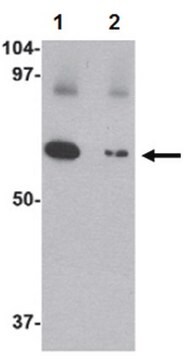MAK071
Pyruvate Assay Kit
sufficient for 100 colorimetric or fluorometric tests
Synonym(s):
Assay Kit for Pyruvate Detection
About This Item
Recommended Products
usage
sufficient for 100 colorimetric or fluorometric tests
detection method
colorimetric
fluorometric
relevant disease(s)
gastrointestinal diseases; cancer
storage temp.
−20°C
Gene Information
human ... PKLR(5313) , PKM2(5315)
mouse ... PKLR(18770) , PKM2(18746)
rat ... PKLR(24651) , PKM2(25630)
General description
Suitability
Principle
replaced by
Signal Word
Danger
Hazard Statements
Precautionary Statements
Hazard Classifications
Aquatic Chronic 3 - Resp. Sens. 1 - Skin Sens. 1
Storage Class Code
10 - Combustible liquids
Choose from one of the most recent versions:
Certificates of Analysis (COA)
Don't see the Right Version?
If you require a particular version, you can look up a specific certificate by the Lot or Batch number.
Already Own This Product?
Find documentation for the products that you have recently purchased in the Document Library.
Customers Also Viewed
Articles
We presents an article about the Warburg effect, and how it is the enhanced conversion of glucose to lactate observed in tumor cells, even in the presence of normal levels of oxygen. Otto Heinrich Warburg demonstrated in 1924 that cancer cells show an increased dependence on glycolysis to meet their energy needs, regardless of whether they were well-oxygenated or not.
Our team of scientists has experience in all areas of research including Life Science, Material Science, Chemical Synthesis, Chromatography, Analytical and many others.
Contact Technical Service




